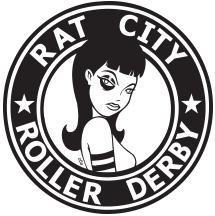
Growing up in Korea, my mom always dreamed of being a figure skater. While it wasn’t in the cards for her, she decided to experience it through the eyes of her two young daughters. At the young age of 5, my mother signed me and my sister up for figure skating lessons, and before I knew it, I was spinning and leaping my way to the podium as a serious contender. I continued skating competitively through high school, earning gold medals in New England Regional and Eastern Sectional competitions. I was even able to compete at the National level and earn a gold medal while representing the USA at the North American Challenge (US vs. Mexico and Canada).
Training was tough. I remember waking up at 4:00 AM every morning to go to the rink. As soon as practice was done, I’d have to change out of my gear in the car to go to school. After school, I’d head to rink again after school to train for three more hours. I was skating four hours a day, 7 days a week, with 5 different coaches, each with a different focus area – spins, jumps, power, artistry, and flexibility. In addition to on-ice training, I was weight training three times a week and taking ballet lessons once a week.
My favorite part about skating? The competition, of course! I loved the adrenaline and pressure I felt when competing. I loved that that the hours, days, and months of practice came down to performances that only lasted minutes. I loved putting on a show for the audience and proving that while I was smaller and younger than most of my competitors, I was still a force to be reckoned with. Simply put, I was there to win.
 After competing for almost 13 years, I decided to hang up my skates in order to focus more on college. Despite this, I was still a competitive person, and I was still able to satisfy this need through track & field as well as golf.
After competing for almost 13 years, I decided to hang up my skates in order to focus more on college. Despite this, I was still a competitive person, and I was still able to satisfy this need through track & field as well as golf.
After graduation, I became close friends with a coworker in Chicago who told me she played roller derby. I remember her trying to explain the sport to me using donuts and ultimately invited me to go see a bout. Like many who experience roller derby for the first time, I was blown away! I realized that my drive for competition was waking back up; after watching the first jam all I was thinking was, “I want to do that!” A year later, I moved to Seattle and the very same friend introduced me to someone who played banked track roller derby. I was timid, but eventually this person took me to Fast Girl Skates and I bought my first pair of quad skates.
I remember roller skating once or twice in my youth for friends’ birthday parties. Despite my ice skating experience, I remember struggling on roller skates and hitting the railings or falling in order to stop myself. Understandably, I was nervous for my first day at PFM (a program that stands for “Potential Fresh Meat” that tests foundational skills). To my surprise, once I figured out where I needed to hold my weight, roller skating wasn’t too difficult. As it turns out, skating on roller skates and ice skating are very similar. I was able to skate on the straightaways and with a few minor weight adjustments, and I was able to do most of the same stops as I did on ice skates.

Not everything has been an easy transition from ice skating to roller derby, as I’m sure most people would assume. Skating upright and having good posture – extremely good traits to have as an ice skater – are not ideal in roller derby as your front torso is a legal hitting zone, and I soon learned that lesson the hard way. The “full contact” aspect of hitting and taking hits has been a very difficult thing to adjust to in roller derby. I was so accustomed to killing my competitors with kindness, smiles, and a good performance; not by hitting them. I have had to catch myself so many times from saying, “I’m so sorry,” after hitting an opponent or turning around to help someone back up. Roller derby is a sport with rules, and I just have to keep remembering that hitting is the nature of the sport. If I’m not hitting my opponents first, they’re going to hit me.
There are many people that still believe that roller derby isn’t a real sport. I think many people have the impression that bouts still have predetermined winners and mainly exist for spectator amusement. That may be how it once was, but modern roller derby has truly transitioned from spectacle to sport. Just as I trained in ice skating, derby skaters are training several hours a day and supplementing with off-skates workouts and weight training programs. Skaters are even reviewing footage to learn strategy and implement new strategies. Not only are they training to be the best athletes they can be, but they’re also owning and running their leagues – taking on roles in Human Resources, Finance, Operations, Merchandise, etc. – to be able to participate in a sport that they love. While ice skating is a place where grace, artistry, and physical appearance are valued, roller derby celebrates bruises, big hits, and brute force. This is a sport that doesn’t discriminate based on your job or your school, how much money you make, or even your age and size. In fact, the only thing that matters is your skill as an athlete and your knowledge of the game.
